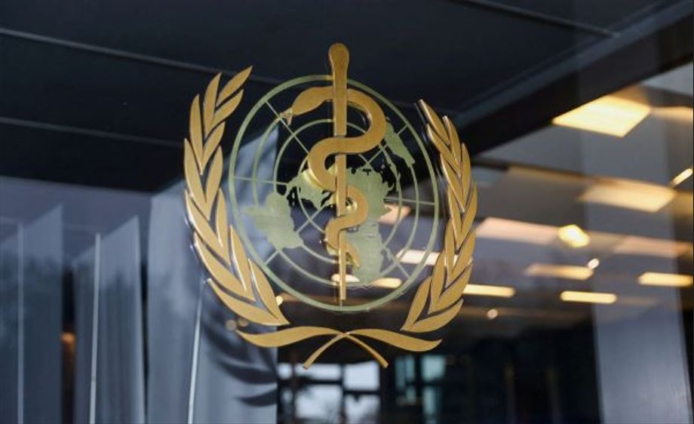The World Health Organization (WHO) has issued a call for urgent action, stressing the inseparable link between climate and health as leaders convene at COP28.
The health community unites, urging negotiators to recognise that tackling climate change is synonymous with safeguarding health, emphasising the severe repercussions if this interconnected reality is neglected.
COP28 is expected to witness an increased presence of health ministers, highlighting a commitment to prioritising health within climate discussions. The WHO-led call emphasises the need for resilient health systems, emission reduction commitments, and a focus on the intersection of health and climate change during the ministerial session.
The WHO Director-General, Dr Tedros Adhanom Ghebreyesus asserts that prioritising health is not merely an option but the bedrock of resilient societies.
“We must change the conversation and demonstrate the massive benefits of bolder climate action on our health and well-being.”
The call emphasises the imperative to showcase the substantial benefits of robust climate action on global health and well-being.
With stark statistics from the Intergovernmental Panel on Climate Change (IPCC) revealing the vulnerability of nearly half of humanity to climate change, the WHO underlines the urgency for decisive and collaborative action. Rising heat-related deaths and the increasing threat of infectious diseases due to climate change necessitate immediate measures.
The health community advocates for comprehensive solutions, including upgrading health interventions, strengthening health systems, and aligning with WHO's framework for climate-resilient health systems. Urgent mitigation measures against air pollution, transitioning to clean energy, and greening the health sector are emphasised to protect human health and reduce global emissions attributed to the health sector.
“As climate change poses an unprecedented challenge to health systems worldwide, it is also imperative that we strengthen our systems to be resilient, low carbon and sustainable. Failure to act swiftly will render health systems worldwide vulnerable to the overwhelming impacts of climate change.
Climate change is not a distant threat; it is a present danger affecting our health on multiple fronts. The health community asserts that climate change is already affecting our health, contributing to the spread of infectious diseases and vector-borne illnesses. There is an urgent need for negotiators to comprehend that climate change is a direct threat to global health that can no longer be ignored or downplayed,” the statement indicated.
In a recent statement, the World Health Organization (WHO) emphasised the crucial need to adapt global health systems, underscoring the importance of upgrading key interventions such as vector control, epidemiological surveillance, and ensuring access to safe water and sanitation. The statement highlighted the vital role of training health staff and urged support to align health systems with the guidance provided in WHO's operational framework for constructing climate-resilient and low-carbon health systems.
According to WHO, a staggering 7 million premature deaths annually are attributed to air pollution. Urgent mitigation measures, including a swift transition to clean energy sources, are deemed necessary to safeguard human health and foster sustainable outcomes. The health community stresses the significance of reducing and ultimately halting emissions to alleviate the negative impact on health.
Recognising the health sector's role in contributing to emissions, the health community advocates for greening the health sector. This involves a comprehensive approach encompassing the decarbonisation of health systems, the digitalisation of medicine, and the implementation of sustainable practices in hospitals and healthcare facilities. Such measures aim to significantly reduce the 5% of global emissions attributed to the health sector.
A striking fact revealed by WHO is that over 1 billion people worldwide are served by healthcare facilities with unreliable electricity or no electricity at all. In response, especially for low-income countries lacking access to electricity, the health community calls for an accelerated effort to provide access to clean energy.
WHO is actively collaborating with partners to expedite the electrification of healthcare facilities through renewable energies, harmonising medical supplies, and leading a transformative change towards cleaner energy sources. These initiatives aim not only to improve services but also to reduce reliance on diesel and gas, promoting sustainability in healthcare delivery.
Recognising the financial disparity in health systems, the health community calls for increased financing from new sources. The plea is to divest from fossil fuel subsidies and mobilise funds to support health systems in coping with climate change.
The WHO-led Alliance for Transformative Action on Climate and Health (ATACH) strives to secure climate-resilient health systems and address the glaring financial gap in the health sector, which currently receives a mere 0.5% of global climate financing.
The health sector calls for a substantial increase in resources to strengthen its ability to innovate, adapt, and provide optimal care. Multiplying financial support becomes essential to ensure a resilient healthcare infrastructure for the challenges of today and the uncertainties of tomorrow.
Latest Stories
-
Club World Cup: Delap makes debut as Chelsea win in front of empty seats
5 minutes -
Retirement age of 70 is fine – Justice Adjei
7 minutes -
Chris Brown jokes about ‘nice’ jail as he starts UK tour
18 minutes -
Juror dismissed in Diddy trial over ‘inconsistencies’
28 minutes -
Don’t allow Executive or Legislature to encroach on judicial independence – Justice Adjei
1 hour -
Bibiani Goldstars crowned champions, squad rewarded by betPawa in bonus payout
1 hour -
Capping Supreme Court judges won’t be helpful – Justice Suurbaareh
2 hours -
Mahama is Ghana’s most prepared President – Gabby Otchere-Darko
2 hours -
Samer Chedid succeeds Mauricio Alarcón as CEO of Nestlé Central and West Africa
2 hours -
Stephen Ntim takes temporary break as NPP Chairman due to health concerns
3 hours -
Abolish ‘Additional Judge’ practice in lower courts – Justice Dennis Adjei urges
3 hours -
District assembly elections are already partisan – Sir Dennis Adjei urges reform
3 hours -
Africa World Airlines reschedules Accra–Ouagadougou route launch to 1st July
3 hours -
Mahama vows to reignite dream of Bukom Boxing Academy
4 hours -
Once I put on my judicial cap, my faith has nothing to do with judgement – Supreme Court nominee
4 hours

